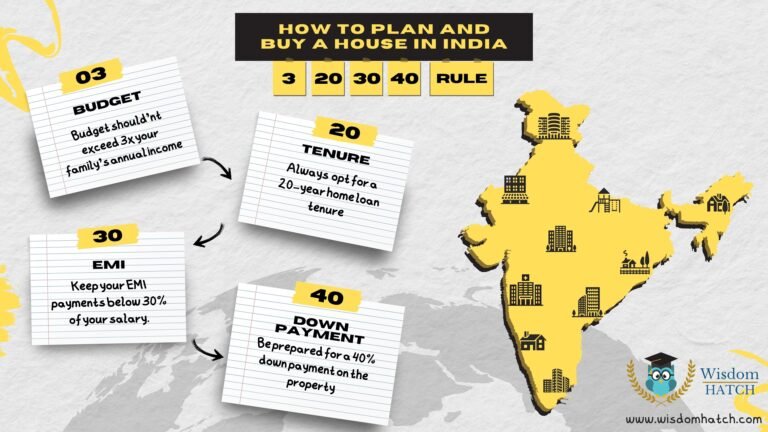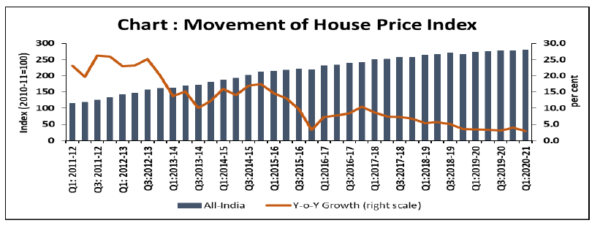How to PLAN and BUY a house in India?

Introduction:
In this article, we’re going to delve into the intricate world of real estate in India. If you’re contemplating purchasing a house or investing in property, this is the ultimate guide for you.Over the years, I’ve gathered valuable insights from buying real estate across three different Indian states. So, rest assured, you’re in good hands.
In this blog, we’ll address some essential questions and topics:
● Should You Consider Purchasing Real Estate?
- How does your financial portfolio size impact your decision?
- Exploring opportunities in distressed sales.
- Analyzing the rent vs. EMI scenario.
● Planning Your Dream Home: Build or Buy?
- Weighing the pros and cons of building your own house.
- The advantages and disadvantages of buying from a builder.
- Financial considerations for each option.
● Choosing the Right Property: Location Matters
- The significance of rental yield.
- Market cycles and their impact on property prices.
- Smart budgeting when purchasing property.
● The Long-Term Benefits of Real Estate
- Tax planning advantages.
- Wealth preservation through property.
- Diversifying your investment portfolio.
Let’s dive into these key aspects of planning and buying a house in India.
Should You Consider Purchasing Real Estate?
Portfolio Size Matters:
Before you decide to invest in real estate, it’s crucial to assess the size of your financial portfolio. Real estate can be a fantastic investment, but only if your financial portfolio is robust. The 3-20-30-40 rule is a helpful guideline:
- Ensure your budget doesn’t exceed three times your family’s annual income.
- Opt for a 20-year home loan tenure.
- Keep your EMI payments below 30% of your salary.
- Be prepared for a 40% down payment on the property.
Distressed Sales and Good Deals:
Exploring opportunities in distressed sales can be a wise move. These are situations where property owners need to sell quickly, often offering excellent deals. If you can secure a loan, taking advantage of such opportunities can be financially rewarding.
Rent vs. EMI Analysis:
One common dilemma is whether to continue paying rent or invest in a property.
In metros like Delhi or Mumbai, where property prices are high, the rent vs. EMI scenario can be crucial. Calculate your rental yield and consider your long-term plans before making a decision.
Let’s take an example:
Consider that you are paying a rent of 1 Lakh a month for a house worth 4 crores in Delhi.
Here your Rental Yield is (12 Lakhs / 4 crores), which comes out to be around 3%.
This is not a great yield, so it would make more sense to rent.
Your Ideal Rental Yield should be more than 4%.
Planning Your Dream Home: Build or Buy?
Building Your Own House:
Building your own house can be a fulfilling experience, but it’s not without challenges.
Consider these factors:
- Time and effort required for construction.
- Understanding local laws and securing necessary permissions.
- Assessing the cost-effectiveness of this option based on your lifestyle.
Buying from a Builder:
When purchasing from a builder, keep in mind that you may lose a portion of your budget, typically around 25-30%. However, it can save you significant time and effort. To ensure a smooth experience:
- Visit construction sites to assess progress and quality.
- Don’t rely solely on the builder’s reputation; do your due diligence.
- Consider buying properties that are 50% completed even if it is at a slight premium.
- Pay an independent contractor to inspect the property regularly.
There are situations where reputed builders complete their initial projects well and then after their market value is set, their project quality decreases.
Choosing the Right Property: Location Matters
Rental Yield and Market Cycles:
Your property’s location plays a crucial role in its long-term value. Consider these factors:
- Calculate rental yield to gauge investment potential. A property that gives 4% rental yield is considered to be a good investment.
- Understand market cycles; in some areas, property prices may be on the rise, while in others, they may stagnate.
As seen in the chart below, Real Estate prices have been going down over the last decade.
This could possibly mean that this could be a favorable time to purchase good Real Estate.

Budgeting Smartly:
Budgeting wisely is essential when purchasing property. Define your budget based on your financial situation, and aim for properties that align with your long-term goals. Smaller blocks, typically under 2 crores, can be more manageable and easier to resell.
The Long-Term Benefits of Real Estate
Tax Planning Advantages:
One of the perks of owning real estate is its potential for tax planning. Explore the tax benefits of property ownership in India, as it can significantly impact your financial portfolio.
Wealth Preservation Through Property:
Unlike money in a bank account, property typically appreciates over time, acting as a hedge against currency devaluation. While there may be periods of stagnation, property ownership preserves your wealth.
If you are a serious investor and are looking for advanced techniques with a focus on better returns, join my Youtube Community where I give live and timely updates on the Stock Market
Conclusion
Purchasing a house in India is a significant decision that requires careful planning. Remember to align your investment with your financial capabilities, choose your approach wisely, consider the location, and explore the long-term benefits of property ownership.
I hope you found this practical guide insightful and helpful as you embark on your real estate journey.
● Should You Consider Purchasing Real Estate?
- Assess financial portfolio size: Follow the 3-20-30-40 rule.
- Explore distressed sales for good deals.
- Analyze rent vs. EMI scenario based on rental yield.
● Planning Your Dream Home: Build or Buy?
- Building Your Own House:
- Consider time, effort, and legal aspects.
- Buying from a Builder:
- Be aware of potential budget loss.
- Ensure quality and progress checks.
● Choosing the Right Property: Location Matters
- Consider rental yield and market cycles.
- Budget smartly, aligning with long-term goals.
● The Long-Term Benefits of Real Estate
- Explore tax planning advantages.
- Property preserves wealth over time.
● Conclusion: Careful planning is essential when buying a house in India; consider financial capability, approach, location, and long-term benefits.
Ever wondered what we get in return for the taxes we pay in India. Whether the Tax Structure is TOXIC? Check out our Blog post on HEAVY TAXES, But we get NOTHING in return
MUST know BEFORE you become an Airbnb host
Medium Article Preksha Chand edit post MUST know BEFORE you become an Airbnb host Medium Article Preksha Chand edit post MUST know BEFORE you become an Airbnb host Medium...
Make more money from your property: Short-term rental [Airbnb]
Medium Article Preksha Chand edit post Make more money from your property: Short-term rental [Airbnb] Medium Article Preksha Chand edit post Make more money from your property: Short-term rental...
GOA Airbnb Laws: What Hosts Need to Know [2024]
Medium Article Preksha Chand edit post Make more money from your property: Short-term rental [Airbnb] Medium Article Preksha Chand edit post Make more money from your property: Short-term rental...





